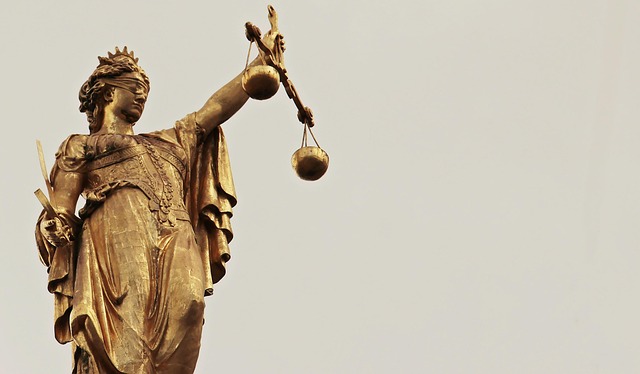Contempt proceedings in Oregon are enforced by courts through a motion process, with legal experts crucial for fairness and guidance. These experts navigate complex laws, interpret evidence, and protect rights, from initial motions to hearings and sanctions. They demystify procedures, challenge evidence, advocate for alternatives, and ensure informed decision-making to mitigate legal repercussions, including fines and jail time, by specializing in Oregon's contempt court laws.
In Oregon, contempt proceedings play a crucial role in maintaining judicial authority and ensuring compliance with court orders. This article provides comprehensive guidance from leading attorney experts on navigating these complex matters. We explore the intricate process, from understanding contempt charges to defending against them, and offer insights into evidence requirements, court procedures, potential consequences, and effective strategies. Whether you’re a legal professional or facing personal challenges, this guide equips you with knowledge about contempt court and the role of legal experts in Oregon.
- Understanding Contempt Proceedings in Oregon
- Roles and Responsibilities of Legal Experts
- Evidence and Proof Requirements for Contempt
- Defense Strategies Against Contempt Charges
- Navigating the Contempt Court Process
- Potential Consequences and Resolutions
Understanding Contempt Proceedings in Oregon

In Oregon, contempt proceedings are a powerful tool for courts to ensure compliance with their orders. When a party fails to adhere to a court’s order, they may be held in contempt, which can result in significant consequences. These proceedings are typically initiated by a motion from a contemnor—a party who feels the other is not fulfilling their legal obligations. A contempt court legal expert in Oregon explains that the onus is on the respondent to demonstrate why they should not be found in contempt.
The process involves a hearing where both parties present their cases, with evidence and testimony being key components. The judge then determines whether the respondent has failed to comply and, if so, decides on an appropriate punishment. This can range from fines to jail time, depending on the severity of the contemnor’s actions and the specific order they’ve violated. Understanding these procedures is crucial for individuals and businesses alike to avoid potential legal repercussions.
Roles and Responsibilities of Legal Experts

Legal experts play a pivotal role in contempt proceedings, offering specialized knowledge and guidance that is often crucial for navigating the complex intricacies of such cases. In Oregon’s contempt court, these experts—typically attorneys with extensive experience—are responsible for ensuring procedural fairness and upholding legal standards.
Their responsibilities encompass a wide range, from providing strategic advice to clients facing contempt charges to representing them in court. They interpret and explain laws related to contempt, analyze specific case facts, and offer evidence-based recommendations. Moreover, these legal experts help clients understand their rights, obligations, and potential consequences, enabling informed decision-making throughout the proceedings.
Evidence and Proof Requirements for Contempt

In contempt proceedings, establishing guilt requires clear and convincing evidence. This means that the attorney guiding you through this process must be prepared to present compelling proof that demonstrates a willful disregard for a court order or other legal obligation. The court will scrutinize every piece of evidence to ensure it meets this standard.
Contempt cases often turn on nuances and circumstantial evidence, making expert legal advice invaluable. A contempt court legal expert understands the complexities involved and can help gather and interpret evidence effectively. They’ll guide you in presenting a strong case, ensuring that your actions or inactions are accurately represented and that your rights are protected throughout the proceedings.
Defense Strategies Against Contempt Charges

Facing contempt charges in Oregon can be a daunting prospect, but with the right legal strategy, individuals can mount a robust defense. The first step for any defendant is to consult a contempt court legal expert who understands the nuances of Oregon’s laws and procedures. This attorney will help navigate the complexities of the case, ensuring all legal rights are protected.
Effective defense strategies often involve challenging the evidence presented by the prosecution, demonstrating good faith efforts to comply with court orders, and highlighting any mitigating circumstances. A contempt court legal expert can advise on the admissibility of evidence, cross-examine witnesses, and argue for alternative sanctions if appropriate. By employing these tactics, individuals can protect their rights and potentially avoid harsh penalties associated with contempt charges.
Navigating the Contempt Court Process

Navigating the Contempt Court process in Oregon requires a deep understanding of the legal system, as it can be complex and intricate. A contempt court legal expert guides individuals through this challenging journey, ensuring they comprehend the procedures and rights involved. The first step is to file a motion with the court, outlining the specific allegations of non-compliance or disobedience. This sets in motion a series of legal actions designed to resolve the issue at hand.
A contempt hearing is then scheduled, where both parties present their cases. The judge plays a crucial role in evaluating the evidence and deciding whether the accused is in contempt. If found guilty, the court may impose sanctions, which can range from fines to community service or even jail time. This process demands strategic planning, meticulous documentation, and adherence to legal protocols, making it essential to seek guidance from an experienced attorney who understands the nuances of Oregon’s contempt laws.
Potential Consequences and Resolutions

The potential consequences of being held in contempt of court can be severe, including fines, jail time, or both. These penalties are intended to enforce compliance with a court order and deter future non-compliance. However, there are also various resolutions available that can help avoid these harsh outcomes. A seasoned contempt court legal expert may advise on negotiating settlements, offering explanations for non-compliance, or proposing alternative arrangements to resolve the issue without resorting to punishment.
Understanding the specific circumstances of the case is crucial in determining the most suitable resolution. A legal expert can guide clients through this process, ensuring they fully comprehend their rights and obligations. They may also assist with crafting a plan to prevent future contemptuous behavior, thereby promoting a more positive and cooperative atmosphere within the legal system.






